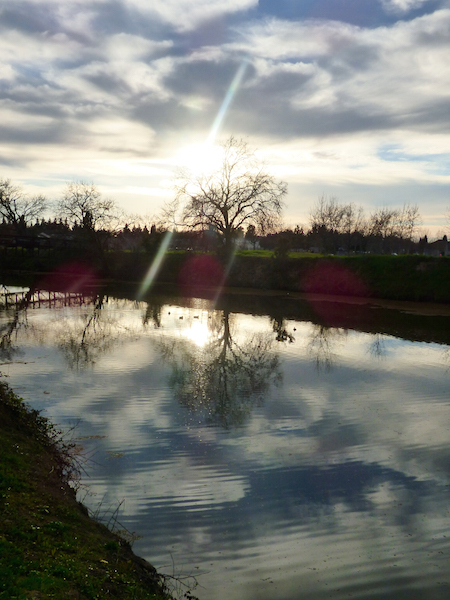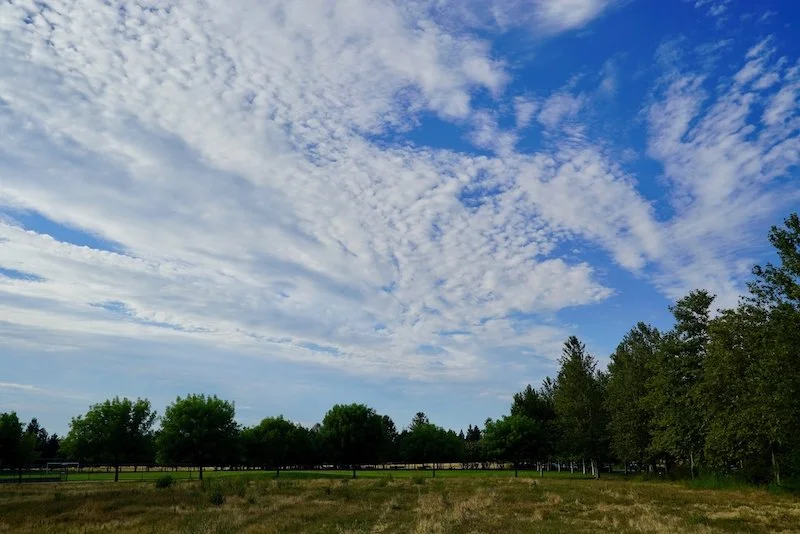The Art Of Reflection
/There is something about the mirrored edge of sky and tree on water that demonstrates, to me, the power of reflection to harmonize a scene. It reminds me to use the power of reflection within me to find my own harmony and to create beauty in my life. A little practice with this idea and I have concluded that it offers so much more than aesthetics. It is, in fact, the path to wisdom.
One trick to evolving your own wisdom is to be like water. You find your own depth by reflecting the world you live in. The word "reflection" has this double meaning of reflecting like a mirror and of reflecting as in thinking about something deeply. This second form is usually something you do after the fact when you think back on an experience. But when you are like water, you reflect in the moment. You mirror the world as it is, letting it remain itself, while you reflect a metaphoric reality, which is the evolving wisdom that shows up in you.
We have mostly lost the value of reflection in a world that constantly engages our senses and requires active productivity. Inner work is devalued. Tablets and telephones commandeer our imagination. We are tethered to an electronic reality that draws over us a veil of illusion, that disconnects us from ourselves, and that alienates us from life. We have forgotten how to take the world into ourselves, how to find it's mirrored reality within us, and how to grow our wisdom from what the world teaches us.
The first meaning of reflection, mirroring, is perceptual and experiential. It is a kind of embodiment of life by taking the world into you and letting it’s mirrored reflection form inside of you. This first encounter is more unconscious, more immediate, more holistic and more fluid. Research on "mirror neurons" suggest that this is not simply a developed capacity, but a built-in mechanism in human biomechanics. We are wired to duplicate the outer world within us.
Many spiritual traditions stress the importance and value of becoming a clear mirror, of cleaning the filters of perception so that we may see the world as it is. But reflection in this first sense is always a little distorted, sometimes inverted or reversed, or with edges blurred, and colors blended. We may not ever fully escape the distortion of reality in the first reflection. But we can strive to be non-judgmental and to take the world into us as it is in all of its brutality and its beauty.
The second meaning of reflection is an active engagement. It is the process of thinking about something, of seeking to understand it as a metaphor, and as a doorway to truth. This is the working of it inside to extract something of value out of it. This process is more like digestion: chewing over something, breaking down the experience into digestible elements, taking what is worthwhile and eliminating the rest. This can take seconds or last a lifetime.
The process of this secondary reflection requires an openness to both the conscious and unconscious and allows for an emergent or interactive intelligence. At times, you may actively think about an experience and, at other times, letting it percolate in your unconscious. You take the matter into you in the first reflection, then hold it within you in the second reflection so that it takes up residence and lives within you long enough to form into a truth you can embrace. Reflection paves the way for Revelation – it is opening oneself to a genuine and deep dialogue with yourself, with others, and with life. This is learning to truly listen, to be attentive to what life is teaching you while staying anchored to your own core.
The key to reflection is to make it a practice and a habit that leads to your own wisdom and serves you in living a beautiful life.
“By three methods we may learn wisdom: First, by reflection, which is noblest; Second, by imitation, which is easiest; and third by experience, which is the bitterest”
The goal of the First Reflection is to clean your filters and improve your ability to take the world into you. Here are some practices that help to mirror the world more accurately:
- Practice Daily Meditation
- Take "Pauses" -- Stop And Notice The World
- Practice Presence: Be In The Moment
- Use Perceptual Position (Step Into “Other” People and Things)
- Stop Your internal dialogue
The goal of the Second Reflection is to transform experience into wisdom or into practical use. Here are some practices for the second reflection:
- Journaling or Writing -- (Poetry Is One Of My Vehicles)
- Painting or Drawing
- Dancing or Movement
- Music
- Any Creative Catalyst
- Testing Your Ideas In Life: Trial and Error
The Art of Reflection is part of a larger process for
transforming experience into wisdom, living life beautifully,
making your unique contribution to the world,
and leaving behind a meaningful legacy.







